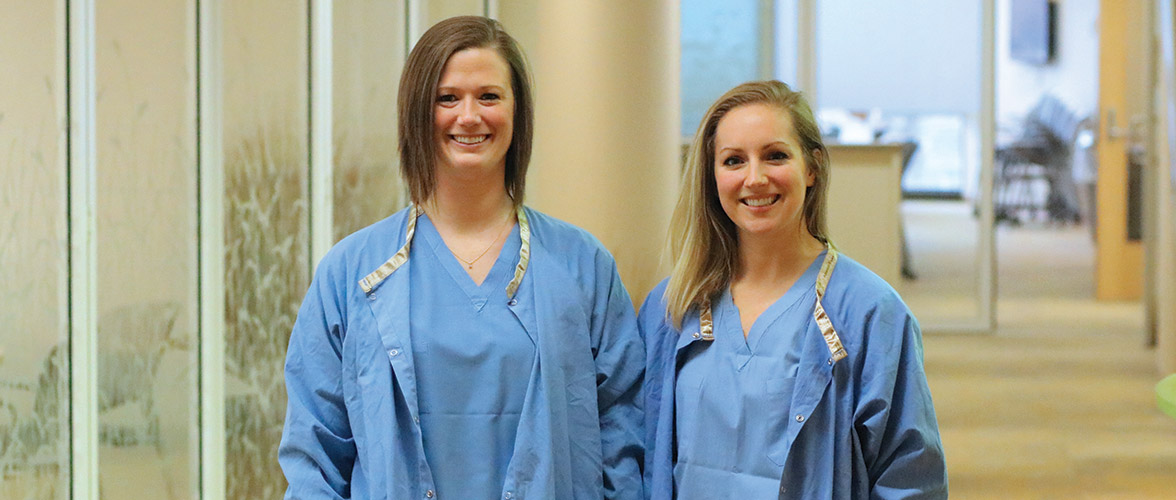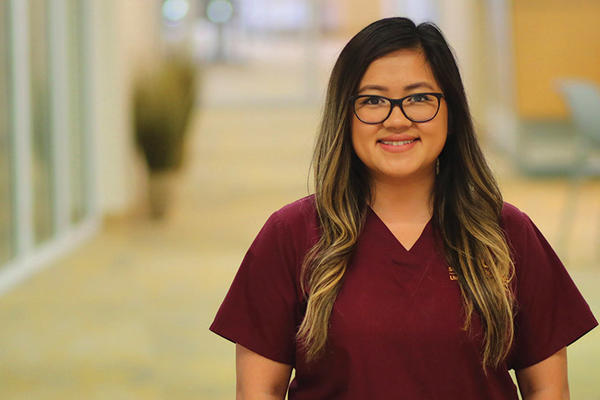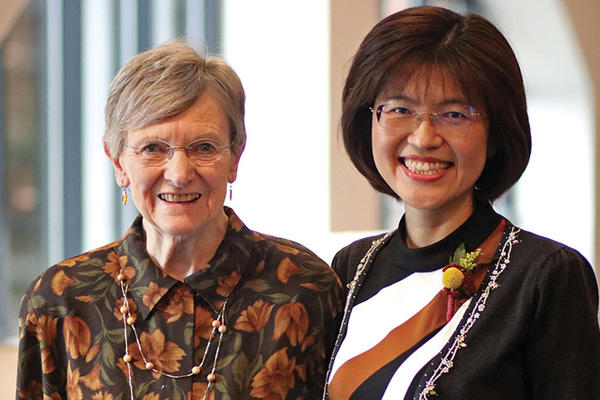Alternatives to opioids
DNP project demonstrates gabapentin’s effectiveness for pain relief
March 21, 2019
Meleah Maynard

In 2017, the Centers for Disease Control and Prevention estimated that an average of 130 people died from opioid overdoses every day.
With studies showing that 1 in 15 patients prescribed opioids for postoperative pain become long-term users, clinicians have been urged to find alternative strategies to manage pain safely.
As students in the Doctor of Nursing Practice nurse anesthesia program, Hali Haukos and Kathryn Kopel teamed up on a quality improvement project that tackled the issue of opioid use. Discussion with their preceptors and community partners revealed that a community-access hospital in rural Hutchinson, Minnesota was seeking to find ways to relieve postoperative pain without using opioids. Practitioners in Hutchinson had already completed some research using Tylenol and Celebrex, so they suggested Haukos and Kopel create a quality improvement project assessing the effectiveness of gabapentin, which is most often used to control seizures.
“Katie and I knew gabapentin had been used to decrease pain and opioid consumption, so we read several research articles that supported its use in general surgery. We worked with two surgeons and two nurse anesthetists in Hutchinson to develop a plan they supported,” said Haukos, who graduated in 2018 and is now a certified registered nurse anesthetist (CRNA) at Regions Hospital in St. Paul. The result was a project aimed at decreasing opioid consumption for general surgery patients both during and after their procedures by giving them a single, 300-milligram preoperative dose of gabapentin.
The effects were clear. One hundred percent of qualified patients received the preoperative dose of gabapentin and reported postoperative pain scores that decreased by half, despite receiving fewer opioids during and after surgery.
Kopel, who also graduated in 2018 and serves as a CRNA at Hennepin Health Care in Minneapolis, noted the project’s success and was grateful for the support she and Haukos received. “Hali and I were fortunate to work with a great team of CRNAs, surgeons and nurses in Hutchinson who were eager to implement well-documented research into practice to improve their patients’ surgical experience,” she said, adding their appreciation for project adviser Professor Dan Pesut, PhD, RN, FAAN. “Opioid addiction has been a tragic problem for many years.”
Nurse Anesthesia Specialty Coordinator Dan Lovinaria, DNP, MBA, APRN, CRNA, who consulted with Haukos and Kopel on best practices for minimizing opioid use, sees projects like theirs as a timely part of a larger effort to combat the country’s opioid epidemic. “It’s very important that anesthesia providers practice opioid-sparing techniques as much as possible,” he said. “We want to be part of the solution to the opioid crisis problem.”
In Hutchinson, Haukos and Kopel’s project is already having a positive impact on other specialties where practitioners are starting to use gabapentin preoperatively with their patients. “They were already doing a lot of work on pain management, but I think being able to see the results of our project for themselves was really beneficial,” Haukos said. “It’s exciting to see so much work being done to try to reduce narcotics use, and it was so important to the success of our project to have such a willing partner in the community.”


